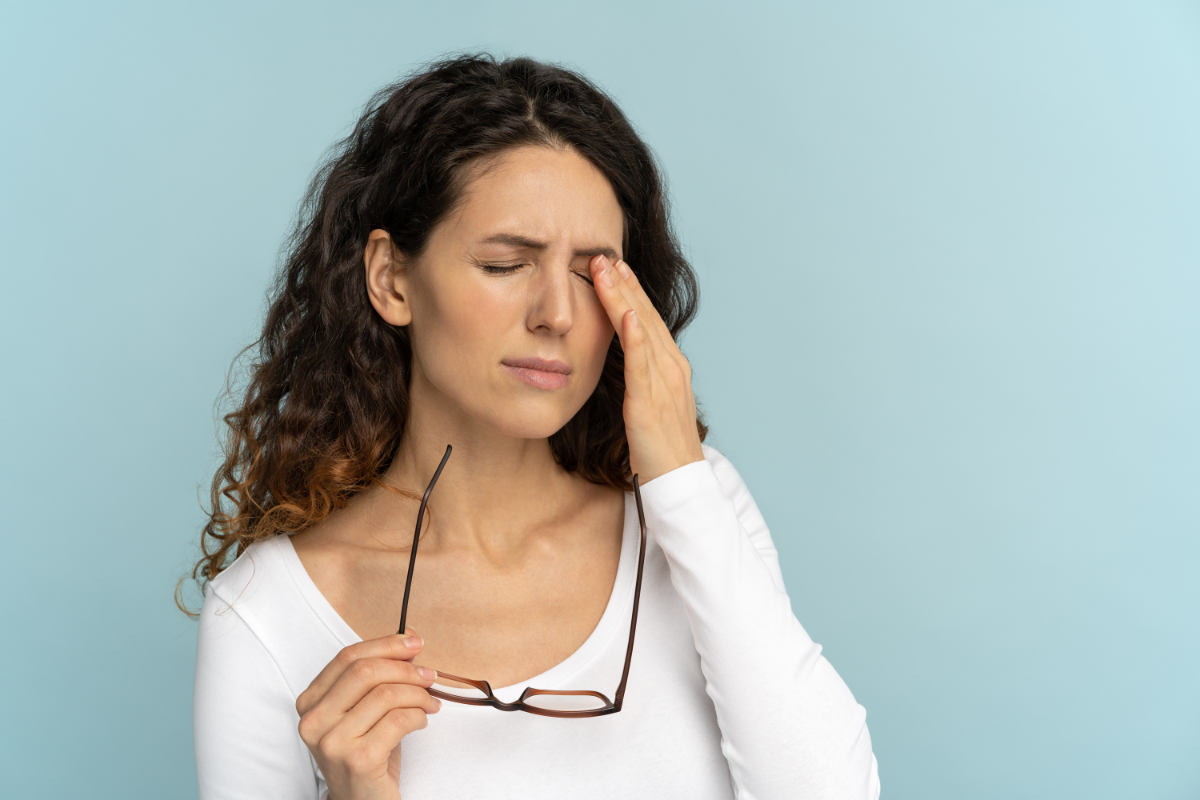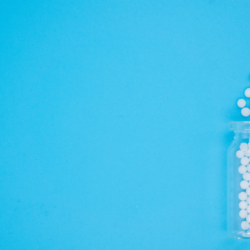In our fast-paced and often stressful world, fatigue has become a major concern for many people. Whether due to stress, overwork or an unbalanced lifestyle, this feeling of exhaustion significantly affects our quality of life. Faced with this challenge,homeopathy presents itself as a gentle, natural alternative, offering a personalised solution for those seeking to combat fatigue without resorting to traditional medicines. This article aims to explore effective homeopathic remedies for various types of fatigue, highlighting their safety of use and individual adaptability. By highlighting the principles of this alternative medicine, we aim to provide key information for those seeking to regain energy and vitality through natural means.
Understanding fatigue
What is fatigue?
Fatigue is a state of weariness or exhaustion resulting from intense mental or physical activity, or sleep deprivation. This phenomenon can manifest itself in different ways and can be divided into several types:
- Physical fatigue: characterised by a feeling of muscular weakness, reducing the ability to perform physical tasks.
- Mental fatigue: affects the ability to concentrate and cognitive function, often due to prolonged mental stress or overwork.
- Emotional fatigue: associated with feelings of apathy or disinterest, usually in response to emotionally taxing or stressful situations.
why am I tired all the time?
The causes of fatigue are varied and can include:
- Stress and overwork: One of the main causes of fatigue in our modern society, where the fast pace of life and constant demands can lead to physical and mental exhaustion.
- Lack of sleep: Insufficient or poor-quality sleep directly affects energy levels and the ability to concentrate.
- Unbalanced diet: Inadequate nutrition, lacking essential nutrients, can lead to a drop in energy levels.
- Lack of exercise: Physical inactivity contributes to fatigue, whereas regular exercise increases energy levels and improves sleep quality.
- Underlying health problems: Certain medical conditions, such as anaemia, thyroid disorders and diabetes, can be sources of fatigue.
Understanding the nature and causes of fatigue is crucial to choosing the most appropriate therapeutic approach, including specific homeopathic remedies which will be discussed in the following sections of this article.
Benefits of homeopathy in the fight against fatigue
Homeopathy stands out in the fight against fatigue because of its holistic and individualised approach, as well as its gentle action, which minimises the risk of side effects.
Personalised approach
Unlike traditional medicinal approaches, homeopathy offers personalised patient care. This medicine considers the individual as a whole, assessing not only the physical symptoms of fatigue, but also the emotional and psychological aspects. An experienced homeopath will seek to understand the circumstances triggering fatigue, whether stress, overwork or sleep disorders, in order to select the most appropriate remedy. This tailor-made strategy aims to stimulate the body’s self-healing mechanisms, thereby promoting natural, lasting recovery.
No side effects
One of the major advantages of homeopathy is the absence of harmful side effects. Homeopathic remedies are prepared from diluted natural substances, making them generally safe for all ages, including children and pregnant or breast-feeding women, when used in accordance with the recommendations of a qualified professional. This feature makes homeopathy particularly attractive to those who are sensitive to conventional medicines or who are looking for gentle complementary treatments.
Physical or mental fatigue: Which homeopathic remedy should you choose?
As a holistic treatment method, homeopathy offers distinct remedies adapted to each type of fatigue. Identifying the type of fatigue is essential for selecting the most effective remedy.
Physical fatigue
Physical fatigue is often experienced as a lack of muscular energy and a general feeling of weariness. Active people, athletes or those whose work requires sustained physical effort are particularly prone to this type of fatigue. In homeopathy, several remedies are frequently recommended for this condition:
- Arnica Montana: Ideal for fatigue related to physical exertion, particularly after intense exercise or heavy bodywork. Arnica helps to relieve muscle pain and speed up recovery.
- Rhus Toxicodendron: Recommended for fatigue after overwork, often accompanied by joint or muscle pain.
Mental fatigue
Mental fatigue affects concentration and memory, and can lead to a feeling of mental fog. It is common among students, professionals faced with a heavy mental workload, and during periods of intense emotional stress. Relevant homeopathic remedies include :
- Kalium Phosphoricum: Particularly suitable for people suffering from mental fatigue, with difficulty concentrating and nervous exhaustion.
- Anacardium: Used for memory problems and difficulty concentrating, often useful when preparing for exams or overwork.
By targeting the specific features of each type of fatigue, these homeopathic remedies offer a personalised, tailored approach to restoring balance and vital energy.
Kalium phosphoricum
When a person experiences both exhaustion and anxiety, the homeopathic remedy indicated is often Kalium phosphoricum. Recommended in a 5 CH dilution, it should be taken 2 to 4 times a day as needed. This remedy is particularly effective in treating symptoms of fatigue linked to intellectual overwork, such as forgetting words, difficulty concentrating and headaches that prevent effective work. Kalium phosphoricum is therefore an invaluable ally for people with high mental demands, such as students during exam periods or professionals during periods of intense activity.
Phosphoricum acidum
Phosphoricum acidum is another key remedy in the treatment of fatigue, particularly when it occurs in the context of worry or grief. This type of fatigue is often accompanied by a marked reduction in interest in usual activities and difficulty in understanding or remembering information. Phosphoricum acidum also targets headaches associated with mental exertion. The distinctive feature of this remedy is that fatigue is generally alleviated by a good night’s sleep, underlining its link with emotional and mental exhaustion.
Selenium
For cases where sleep fails to improve fatigue, or even aggravates it, Selenium in 5 CH dilution may be the solution. This remedy is particularly suitable for people who tend to compensate for their tiredness with excesses – such as drinking too much coffee, tea or alcohol, or taking stimulant medication. The recommended dose is 5 granules, taken 2 to 4 times a day. Selenium is effective in treating deep fatigue that does not resolve with rest, often found in people with an intense and unbalanced lifestyle.
These three homeopathic remedies, Kalium phosphoricum, Phosphoricum acidum and Selenium, offer targeted solutions for different aspects and causes of fatigue, enabling a personalised approach tailored to each individual.
How can I recover more quickly from an episode of intense fatigue?
To recover from an episode of intense fatigue, several strategies based on recent scientific literature can be considered. These strategies include a combination of an adequate diet, the use of specific nutritional supplements and recovery techniques.
Diet and nutritional supplements :
It is recommended to include foods rich in nutrients that help muscle recovery. Eating foods rich in vitamin C, such as citrus fruit, supports the immune system. Omega-3 fatty acids and compounds found in sour cherries, for example, have been identified as beneficial for speeding up recovery after intense exercise. These nutrients help to reduce exercise-induced muscle damage, characterised by oxidative stress and inflammation.
Recovery techniques :
Recovery techniques such as active recovery, massage, compression garments, red light, immersion, contrast water therapy and cryotherapy can also be effective. These methods have been shown to significantly reduce delayed onset muscle soreness (DOMS) and perceived fatigue. It is important to note that the effectiveness of these techniques may vary according to individual characteristics, such as gender and training status, as well as the characteristics of the exercise and recovery itself. For example, cold water immersion and contrast water therapy have shown positive effects on reducing DOMS and perceived fatigue.
Sleep management:
Sleep plays a crucial role in the recovery process. Ensuring quality sleep and a regular rhythm are essential to eliminate residual fatigue and support the immune system. Sleep quality can be improved by gentle activities in daylight, light meals in the evening, and avoiding alcohol and screens before bedtime.
By combining these approaches, it is possible to promote effective recovery after an episode of intense fatigue. It is always advisable to consult a healthcare professional for personalised recommendations tailored to your specific needs.
FAQ
- What is the first step to take after an episode of intense fatigue? It is advisable to start with adequate rest to allow the body to recover. It’s essential to listen to your body’s signals and avoid resuming intense activity straight away.
- How long does it take to recover from intense fatigue? Recovery time can vary depending on the individual and the intensity of the fatigue. In general, a period of a few days to several weeks is considered. Consult a health professional for appropriate follow-up.
- What foods are best for recovering from intense fatigue? Foods rich in vitamins (particularly C and D), minerals such as magnesium, and omega-3s can help recovery. Including fruit, vegetables, nuts and oily fish in your diet is beneficial.
- Are food supplements useful for recovering from intense fatigue? Some supplements can be useful, such as vitamin C or magnesium, but they should be taken on the advice of a health professional to avoid interactions or overdosing.
- What role does sleep play in recovering from intense fatigue? Sleep plays a crucial role. It is important to get enough quality sleep to allow the body to repair and regenerate itself.
- Is physical activity recommended during the recovery period? Light, non-intense physical activity, such as walking or yoga, can be beneficial, but it is important to avoid over-exertion during the recovery period.
- How do I know if persistent fatigue requires medical attention? If fatigue lasts for more than a few weeks, interferes with your daily activities or is accompanied by other symptoms such as weight loss, fever or pain, it is crucial to consult a doctor.
Sources
- Nutritional Compounds to Improve Post-Exercise Recovery.
School of Sport, Exercise and Nutrition, Massey University, Palmerston North 4410, New Zealand
Nutrients 2022 - Front. Physiol, 26 April 2018. An Evidence-Based Approach for Choosing Post-exercise Recovery Techniques to Reduce Markers of Muscle Damage, Soreness, Fatigue, and Inflammation: A Systematic Review With Meta-Analysis





